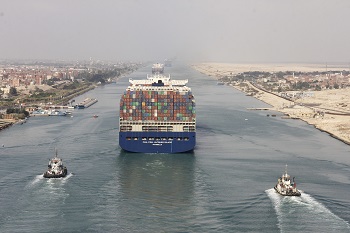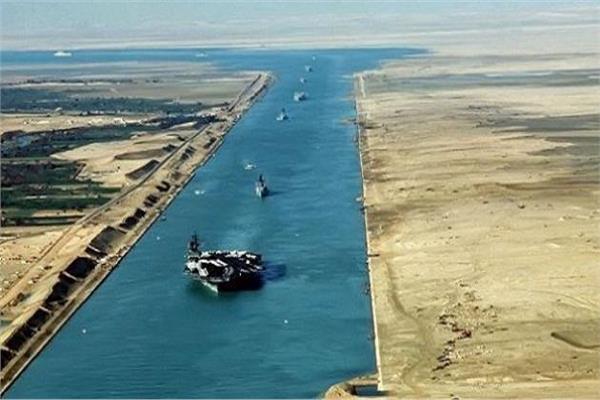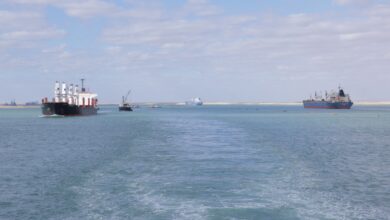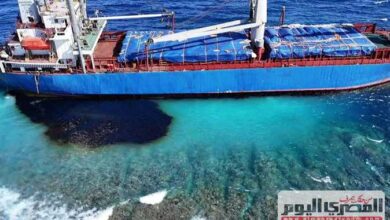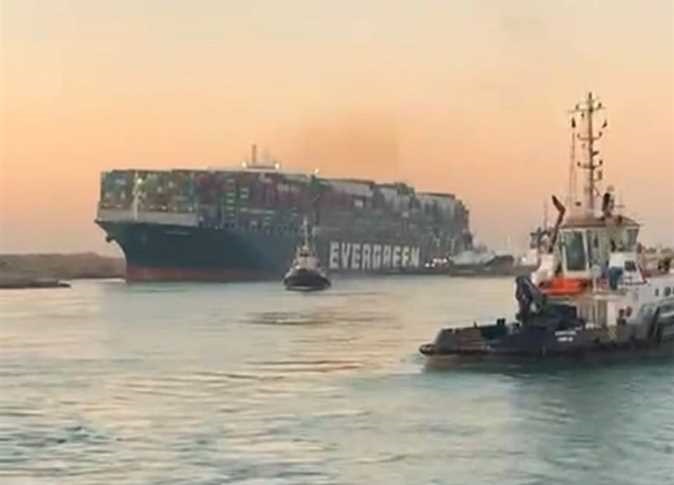
The Ever Given container ship has been successfully refloated after being stranded in the Suez Canal for almost a week, authorities say, following an around-the-clock international effort to dislodge the massive vessel and reopen the global shipping lane.
“The container ship began to float successfully after responding to the pulling maneuvers,” said Osama Rabie, head of the Suez Canal Authority (SCA), in a phone interview with state TV. “Once the ship is withdrawn, we will resume navigation directly, and we will take it to the Bitter Lakes.”
The ship has been mostly dislodged and crews plan to fully refloat it later on Monday, the SCA confirmed.
Video footage from the rescue operation show the stern, the back of the ship, dislodged from the bank and facing the canal after significant movement. The authorities will now keep the freed stern away from the bank as they work on pulling the front, or the bow, out.
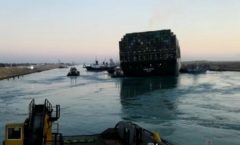
People at the canal began cheering as the news came in. “Thank God the ship has floated,” one person can be heard saying in a video, as the surrounding boats blow their horns in celebration. “God is great. The ship has floated.”
The operation to free the rest of the ship will resume when the water level rises in the late morning, said the SCA in a statement.
Mohab Mamish, the former head of the Suez Canal and Egyptian Presidential seaport adviser, told CNN Arabic that the canal is expected to be ready for passage by today.
Crews from Egypt and around the world have been working nonstop to try to refloat the ship, with the operation involving 10 tug boats, sand dredges and salvage companies working for the past seven days to free the ship.
Previous efforts have failed — but this latest attempt is being executed during high tide where the water in the channel is at its highest.
The Ever Given, a 224,000-ton vessel almost as long as the Empire State Building is tall, ran aground in the Egyptian canal on March 23. A massive effort to salvage the ship has focused on dredging sand from below the front and rear of the ship, before pulling the ship with tugboats.
Rescue teams started digging deeper and closer to the ship on Sunday, with dredging reaching 18 meters (59 feet) at the front of the ship, the SCA said in a statement. Over 27,000 cubic meters (953,000 cubic feet) of sand has been removed so far, said Rabie.
Rabie added that the reasons behind the accident remained unclear.
“There are many factors or reasons, fast winds and the sandstorm could have been a reason but not the main reason — it could have been a technical mistake or human error,” he said. “There will be further investigations.”
Concerns rose over the weekend about the impact of the blockage on global supply chains. The Suez Canal, one of the world’s busiest and most important waterways, is losing an estimated $14 million every day in transit fees, while billions of dollars of cargo is backlogged on over 350 ships currently awaiting passage.
The effects of the crisis are already clear. Nearby Syria imposed fuel rationing on Sunday to safeguard dwindling oil supplies, after oil tankers were unable to make deliveries due to the blockage. Syrian authorities said the ration order was necessary to “guarantee the continued supply of basic services to Syrians such as bakeries, hospitals, water stations, communication centers, and other vital institutions.”

